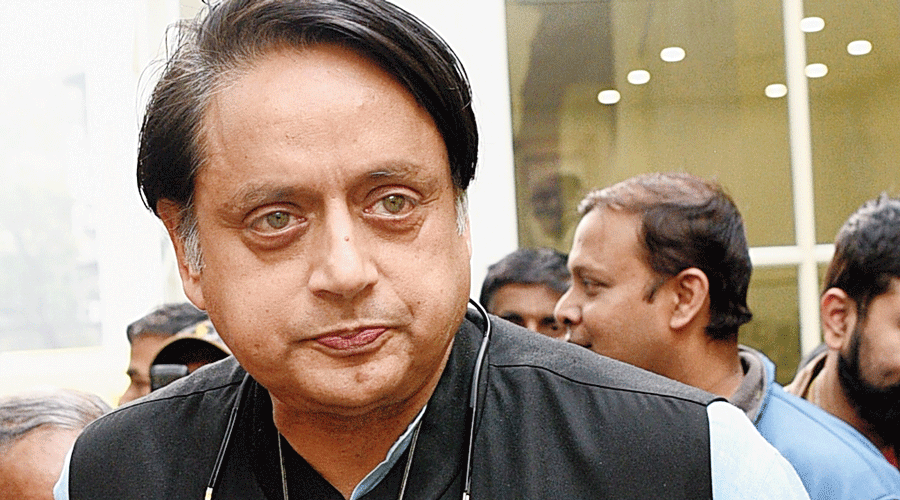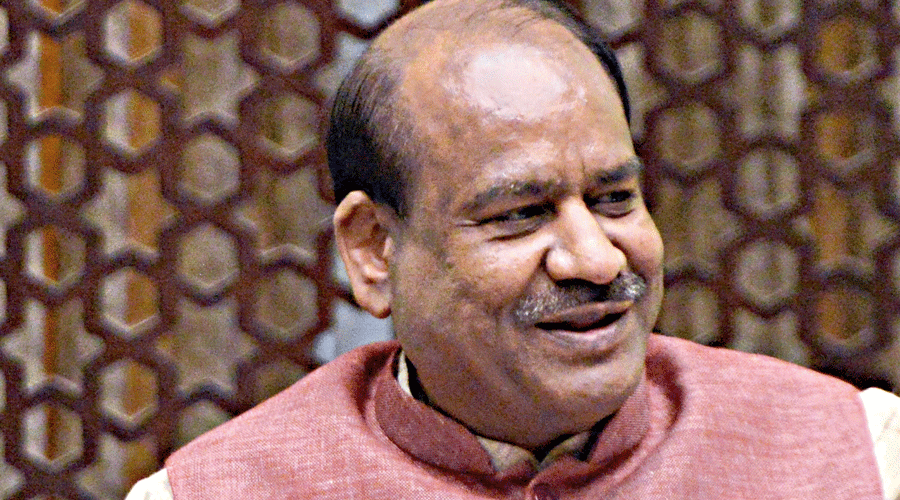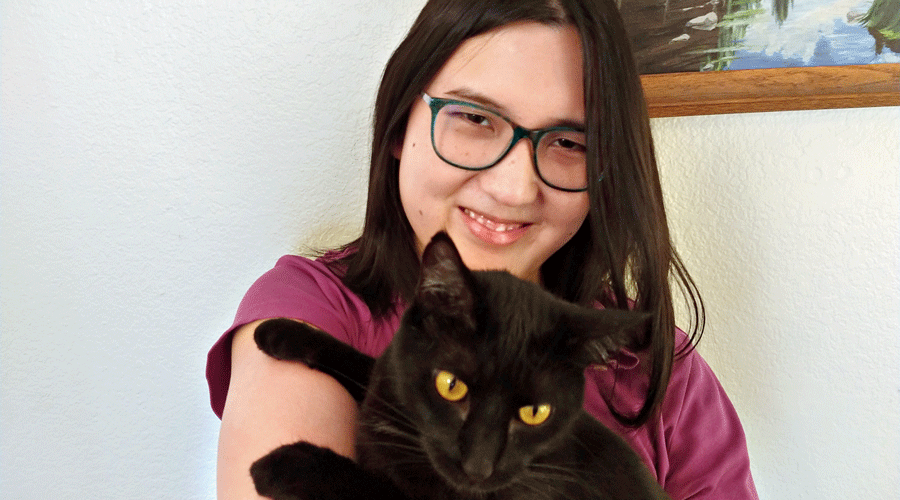A parliamentary committee will go ahead with written information provided by former Facebook scientist Sophie Zhang on the platform’s alleged pro-BJP bias, after Speaker Om Birla indicated she might not be allowed to depose in person, panel chairman Shashi Tharoor has told The Telegraph.
Zhang had last year offered to testify before the parliamentary standing committee on communications and IT, and shared documentation with the committee by email.
On November 1, 2021, Tharoor had tweeted that he had sought permission — as required from the Lok Sabha Speaker for foreign witnesses — for Zhang to depose in person.

Shashi Tharoor. File picture
Birla did not respond to the panel, following which Zhang sent her documentation to news outlets, including this newspaper, earlier this month. These documents indicated that Facebook had ignored her recommendations for action against inauthentic accounts linked to BJP parliamentarian Vinod Sonkar in 2019 and 2020.
Tharoor, a Congress MP, said in an email to this newspaper: “The committee would have wished to hear from Ms Zhang and to question her directly, but we recognise the Speaker’s prerogative in deciding who may be allowed to testify before Parliament.
“In my view, permitting videoconference testimony could have been the answer to the logistical and financial implications of a foreign witness appearing before the committee, but the current rules of Parliament do not permit videoconferencing at all, not even during Covid.

Om Birla. File picture
“In the circumstances, the committee will prepare its report on the subject on the basis of the testimony provided by those witnesses who appeared in person, as well as those who, like Ms Zhang, provided written material for the committee’s consideration.”
Tharoor’s comments came in response to Birla’s interview to UNI last week, in which he said: “Unless it is a very serious issue, foreigners are not supposed to be allowed to appear in front of committees.... We are bound by rules, and there is no mention in the Rules whether Speaker can give permission to a foreigner to appear before a committee…. Some Speakers may have done so in (the) past, but that depends on the individual Speaker, there is no rule to give permission to foreign nationals.”
Birla and Sonkar have not responded to queries from this newspaper.
Zhang tweeted the Speaker’s interview and wrote: “If @ombirlakota gets his way, foreign CEOs and companies will be given impunity, as he forbids the LS to hold them to account via testimony.”
Purported copies of international communications revealed by Zhang describe five networks of inauthentic accounts: two pro-BJP, two pro-Congress, and one pro-Aam Aadmi Party. One of these she found to be linked directly to Sonkar, who happens to chair the parliamentary standing committee on ethics.
From December 2019, when the alleged Sonkar cluster was discovered, to August 2020, when Zhang quit the firm, she says no action was taken against it. However, the other clusters were taken down. Operating inauthentic accounts is not illegal but considered unethical as it drowns out the voices of real users.
Meta has said that it “…fundamentally disagree with Ms Zhang’s characterisation of our priorities and efforts to root out abuse on our platform”.
The company has said the allegations that it protected Sonkar are “completely wrong and misleading” and that it applies its policies “uniformly without regard to anyone’s political positions or party affiliations”.
Facebook’s India public policy head Ankhi Das had quit in 2020 after The Wall Street Journal reported that she had opposed action against hate speech by BJP legislators.
In March this year, The Reporters Collective news website analysed ad data to find that Facebook charged the BJP less compared with other parties for political ads.
Facebook’s internal memos — revealed by its former data scientist Frances Haugen to the US stock market regulator in September last year — suggest the company went easy on hate speech, including anti-Muslim content in India from pages that supported the RSS.
Apar Gupta, executive director of privacy and online rights group Internet Freedom Foundation, tweeted: “If there is no rule prohibiting depositions by foreign nationals, and as per past practice the Speaker has exercised discretion to permit foreigners, then what stands in the way of permitting it today?”
Zhang told the British parliament last October that Facebook was “allowing authoritarian governments to manipulate political discourse”.
Her revelations indicate that the use of fake accounts or trolls by political parties has led to political turmoil —including loss of life and harassment — in Azerbaijan, Honduras, Bolivia, Ecuador and several other countries.












